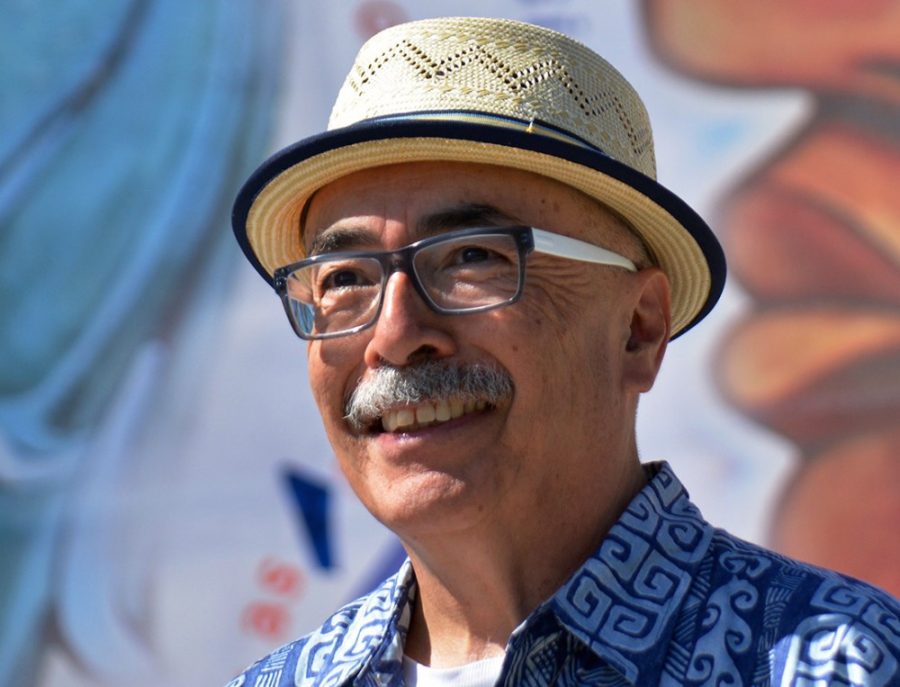Q: What was your reaction when you heard you were to be appointed the U.S. Poet Laureate?
A: “I couldn’t believe it. … It kinda stops you. It stops you from moving and thinking. I was kinda shocked, and I was also very humbled and very pleased. I felt very blessed by being Felipe, and I told Dr. James Billington that I was very honored.”
Q: What do you love most about writing poetry?
A: “It’s life. It’s like putting your fingers into a socket of pure life. … You know, let’s say you’re running out of breath, and the air is really polluted, and you put on that oxygen mask. That’s what poetry is for me. It’s just very liberating. … You can see where you’re coming from and you can jot down where you really are at as things happen in real time. … One of the core elements of wisdom and truth is to be right in the moment, and poetry allows you that.”
Q: Who’s your favorite author?
A: “Well, you know, I have a lot of them. I like the Polish postwar poets a lot. Poets of the Holocaust. I just like them because of all the feelings they have in the poems […] and all the big stuff that’s almost impossible to articulate; they manage to put it on paper and in a poem. And their intensity.”
Q: Do you have a favorite artist?
A: “Let’s see, these are many from the last five years or 10 years: I’ve really been liking Matiz. I’ve always liked Dalí. I’ve always liked Picasso. I’ve always liked van Gogh. And I also like Andy Warhol and Jasper Johns, and all the experimentalist artists. On and on, you know? Judy Chicago—Judy Chicago is amazing—and Siqueiros, the Mexican muralist. … I could eat art if it was a sandwich, everyday.”
Q: What’s your favorite memory?
A: “My favorite memory is me and my mom singing together—singing Mexican ballads together while I’m playing the guitar.”
Q: What would you hope readers come away with after engaging with one of your works?
A: “Well, you know what you do with a poetry book, is you just stand back. You stand back. It’s like making a cake, and you do your best. Or it’s like writing a song, you do your best. Or like baking a cake and writing a song at the same time. You do your very best … and hope [others] like it.”
Q: What do you think has contributed to your success as writer?
A: “My writing has been nurtured by many, many people. … By my parents, by my professors, by my teachers, my third grade teacher, Mrs. Sampson; by my friends who are poets, who were poets when I was in high school, who were models for me; by the librarians who allowed me to take home stacks of books; by editors who said, ‘You know, I’ll look at your manuscript;’ by small press publishers who said, ‘Hey, let’s do something, Juan Felipe!’ By my friends who ran a really tiny publishing venture of maybe 500 books at the most, and just by sitting around and drinking coffee or orange juice and yapping all night with my good buddies, and men and women that enjoyed talking about art and writing.”
Q: What message would you give to young Chicanos or young aspiring poets?
A: “I would say, stand up [and] write. Or sit down and … stand up and write. My message is: be as free as you can be. And my message is: be as kind with your words as you can be. My message is: others are waiting for you, and my message is: experiment and see what happens.”









